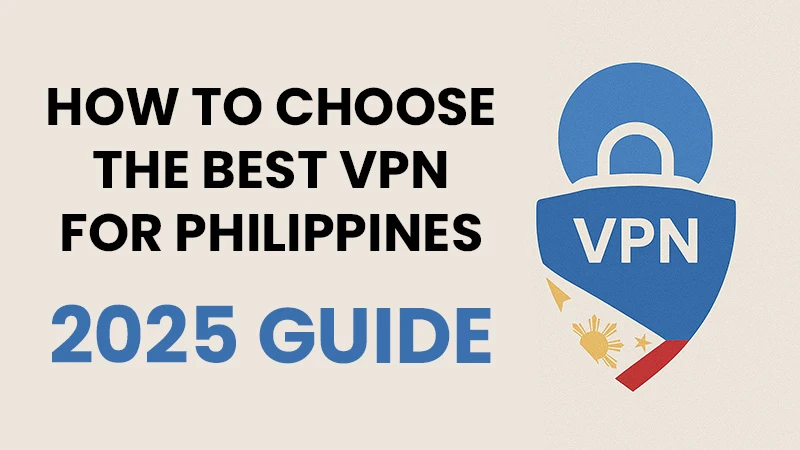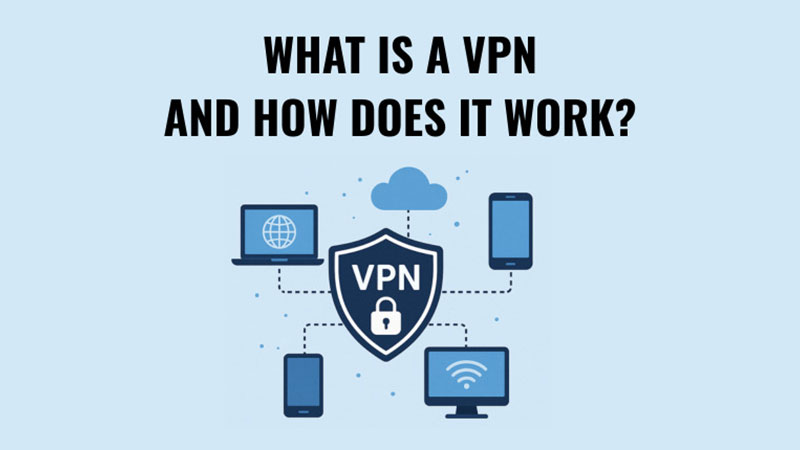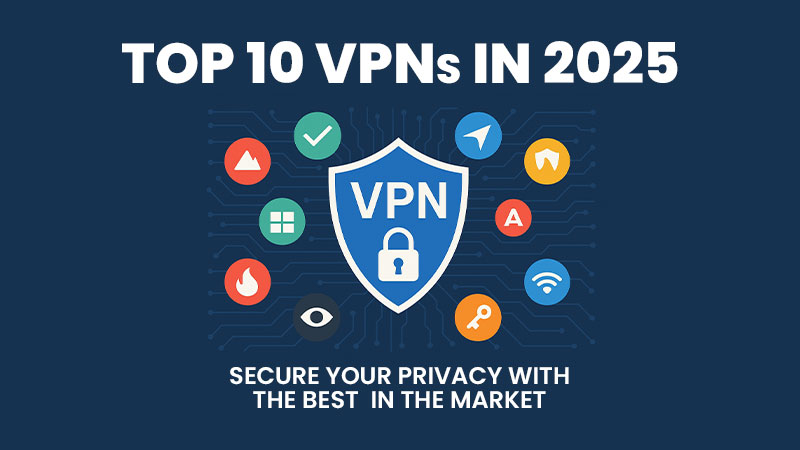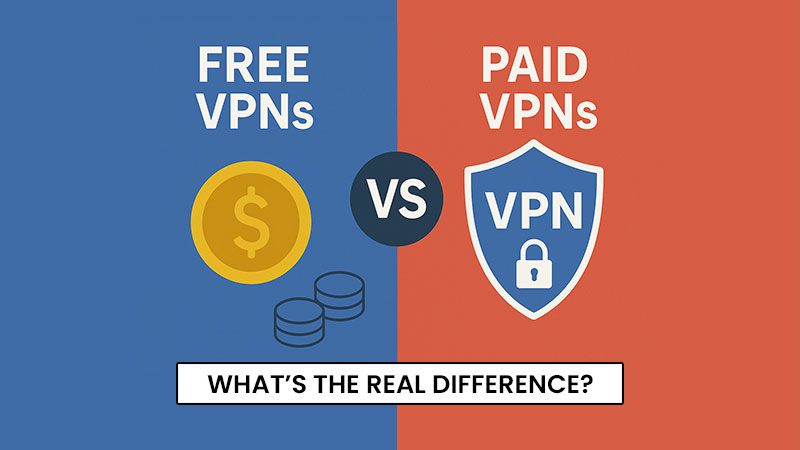If you’re searching for the Best VPN for the Philippines in 2025, you’re likely looking for a way to browse safely, privately, and without limits – whether you live there or are just visiting. The Philippines has a relatively open internet compared to some neighboring countries, but occasional blocks, surveillance concerns, and geo-restrictions can still affect your online experience.
Whether you’re a digital nomad working remotely, a student attending online classes, or simply someone who enjoys global entertainment, using a VPN (Virtual Private Network) helps ensure your online activities remain private, secure, and unrestricted. A VPN creates an encrypted tunnel between your device and the internet, allowing you to mask your IP address, shield your data from hackers, and appear as if you’re browsing from another country. This is particularly helpful for accessing content not available in the Philippines or for maintaining privacy on unsecured public Wi-Fi networks.
Whether you’re looking to stream international content, protect your online privacy, or bypass censorship, finding the best VPN for the Philippines depends on a few key factors. Here’s a complete guide to help you choose the right VPN for your needs in 2025.
Why Use a VPN in the Philippines?
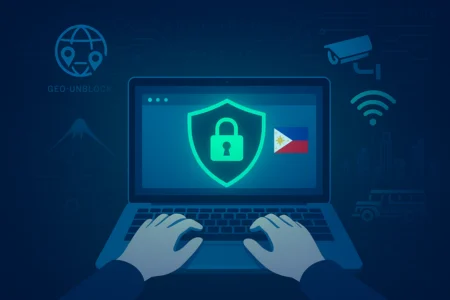
Using a VPN in the Philippines offers multiple benefits that go beyond just streaming. While internet access in the Philippines is relatively open, online privacy, security, and access to unrestricted content are growing concerns. Cybercrime is on the rise in Southeast Asia, and public Wi-Fi networks – commonly found in cafes, malls, and airports – pose risks to users who transmit sensitive data without protection. A VPN acts as a powerful shield by encrypting your connection, making it almost impossible for hackers or even your ISP to monitor your activities.
VPNs also help you bypass content restrictions. Some websites and digital services are geo-blocked in the Philippines, while others are only available to users with IP addresses from specific countries. Whether you’re a Filipino expat wanting to access local TV abroad or a local user looking to explore international content, a VPN gives you virtual access to nearly any region in the world.
Moreover, VPNs help prevent price discrimination. Many online stores and booking platforms adjust prices based on your location. With a VPN, you can switch virtual locations and compare pricing for better deals.
Lastly, as surveillance and data collection become more prevalent, especially through targeted advertising and data mining, using a VPN is a proactive step toward protecting your digital identity and maintaining online anonymity.
- Access geo-blocked content on platforms like Netflix, Hulu, BBC iPlayer, or Disney+.
- Secure your data on public Wi-Fi, especially in cafes, airports, and co-working spaces.
- Bypass online restrictions on certain websites or services.
- Avoid price discrimination on flights or subscription services by switching virtual locations.
Protect your identity and browsing history from hackers, ISPs, and surveillance.

- 9.8
- The fastest and most reliable VPN on the market

- 9.5
- Low-cost VPN offering unrestricted device usage

- 8.2
- Affordable new VPN launched by top industry professionals
Key Features to Look for in a VPN for the Philippines
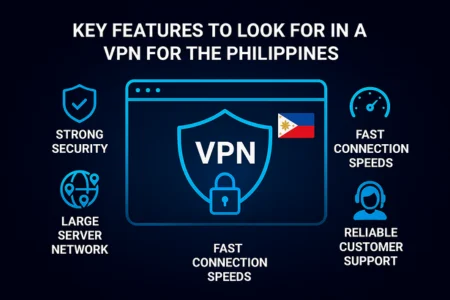
Not all VPNs are created equal. If you’re planning to use a VPN in the Philippines, whether for streaming, browsing, or enhancing your online privacy, you need a provider that can handle the local internet environment and deliver consistent performance. A good VPN should not only provide fast connections but also ensure your security, give you access to global and local content, and offer reliable support in case of issues.
From server coverage and encryption to pricing and ease of use, below are the most essential features to consider when selecting a VPN tailored to your needs in the Philippines:
Fast and Reliable Connection Speeds
A slow VPN can ruin your streaming or gaming experience. Choose a VPN that offers high-speed servers, especially in or near Southeast Asia (e.g., Hong Kong, Singapore, Japan).
Servers in the Philippines and Globally
Look for a VPN provider that offers servers in the Philippines for local content access and a wide global network for accessing international services.
Strong Encryption & No-Logs Policy
Ensure the VPN uses AES-256 encryption and follows a strict no-logs policy to keep your online activities private.
Unblocking Capabilities
Make sure the VPN can reliably unblock popular streaming platforms like Netflix, Amazon Prime Video, and even local Philippine channels abroad.
User-Friendly Apps
The best VPNs offer apps for Windows, macOS, Android, iOS, and even routers. Look for versions that support VPN for Android and offer a browser VPN extension.
Affordable Pricing & Money-Back Guarantee
Find a budget-friendly VPN with a 30-day money-back guarantee and enjoy a free VPN download trial to test it risk-free.
Responsive Customer Support
Opt for a provider that offers 24/7 live chat support in case you need help setting things up or run into issues.
Best VPNs for the Philippines in 2025 (Quick Picks)
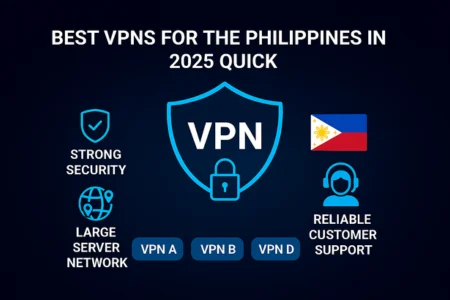
While this guide focuses on how to choose, here are some VPNs that consistently perform well for users in the Philippines. These services have been evaluated based on performance, reliability, server locations, ease of use, and ability to unblock popular content both locally and internationally. Whether you need a VPN for streaming, privacy, gaming, or everyday browsing, these top-rated VPNs offer a great balance of speed, features, and value:
- ExpressVPN – Best overall for speed and security. ExpressVPN is known for its lightning-fast servers, top-tier encryption, and ability to unblock virtually any content. It has servers in over 90 countries, including locations close to the Philippines, ensuring seamless access to both local and global websites. Its user-friendly apps and strong commitment to privacy make it a favorite among professionals and travelers.
- NordVPN – Great value with strong privacy features. NordVPN offers advanced security tools like Double VPN and Threat Protection. With over 5,000 servers worldwide and high speeds ideal for HD streaming and torrenting, it’s an excellent all-around choice for users in the Philippines.
- Surfshark – Budget-friendly with unlimited device support. If you’re looking for a cost-effective option that doesn’t compromise on features, Surfshark is ideal. “Enjoy unlimited simultaneous VPN connections—ideal for families and users with multiple devices. It also includes features like CleanWeb (ad and tracker blocker) and MultiHop for extra privacy.
- CyberGhost – Easy to use, ideal for beginners. CyberGhost offers specialized servers for streaming and torrenting, with a sleek and intuitive interface that even beginners can navigate. It boasts over 9,000 servers worldwide, with some specifically optimized for platforms like Netflix, Hulu, and BBC iPlayer.
- Private Internet Access (PIA) – Highly customizable and affordable. PIA gives tech-savvy users more control over their VPN settings while still being accessible to average users. It has a large network of servers and supports open-source transparency. PIA is also known for its reliable VPN extension for browsers and solid mobile app for VPN for Android.
Each of these VPNs also provides a VPN free download trial or money-back guarantee, allowing you to test their features before committing.
Free VPNs in the Philippines - Are They Safe?
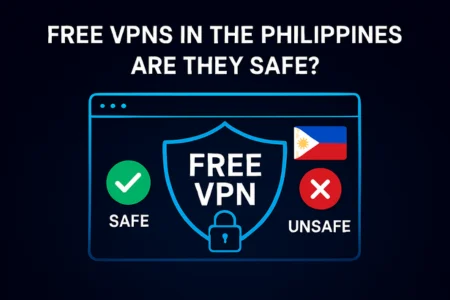
While VPN Philippines free options may seem tempting, especially for those who only need occasional use or want to save money, many come with hidden risks that can outweigh the benefits. Free VPN services often have to cover their operating costs somehow, and this can lead to compromising your privacy and online safety.
The most common drawbacks include:
- Limited bandwidth and slow speeds – Many free VPNs impose strict data caps and throttle your connection, making them unsuitable for streaming, gaming, or extended browsing sessions.
- Weak security or outdated encryption – Without robust protocols like AES-256 encryption, your data is more vulnerable to interception.
- Logging and selling user data – Some free providers fund their services by tracking your browsing habits and selling that information to advertisers.
- Intrusive ads or malware – Pop-up ads and malicious software can be bundled with free VPN apps, putting your device at risk.
Additionally, free VPNs often have smaller server networks, which means fewer options for bypassing geo-restrictions and higher chances of congestion on the servers that are available. This can lead to inconsistent performance and difficulties in unblocking streaming platforms or accessing certain websites.
If you’re only testing a VPN before committing, look for reputable paid providers that offer a VPN free download trial or a money-back guarantee. This way, you can enjoy full security, reliable speeds, and complete feature access without risking your privacy.
For reliable and secure use—especially if you’re handling sensitive data, working remotely, or streaming content – a paid VPN is strongly recommended.
Frequently Asked Questions (FAQ)
Is it legal to use a VPN in the Philippines?
Yes, using a VPN in the Philippines is legal. However, using it for illegal activities – such as hacking, fraud, or distributing copyrighted material – remains against the law.
Which VPN works best for streaming Netflix in the Philippines?
ExpressVPN, NordVPN, and Surfshark are among the most reliable options for unblocking Netflix libraries from multiple countries, including the US, UK, and Japan.
Can I use a VPN on my smartphone?
Absolutely. Most top providers offer dedicated apps for VPN for Android and iOS devices, making it easy to protect

